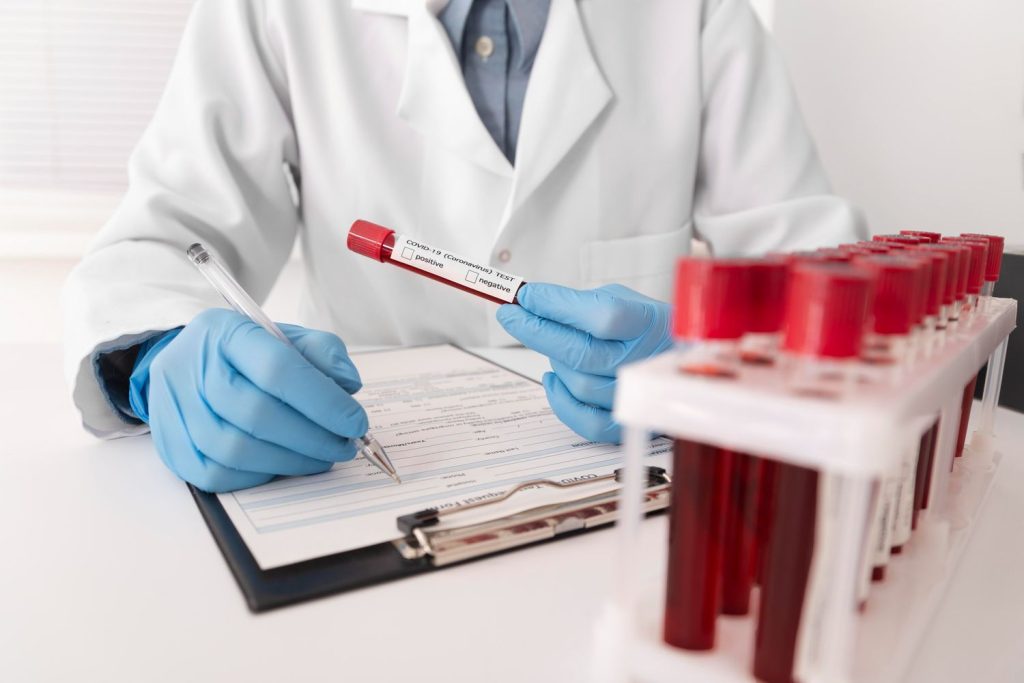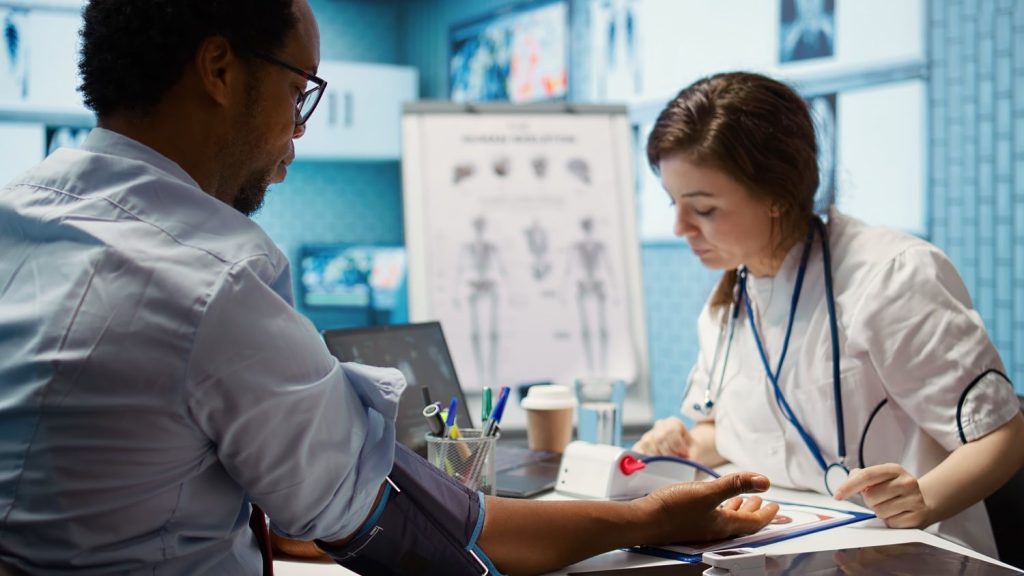How Long After Sex Should You Get Tested for STDs?
September 10, 2025
Understanding the Importance of STD Testing
Let’s be real for a second—sexual health isn’t something most people love to talk about, but it’s something everyone who’s sexually active should think about. Getting tested for sexually transmitted diseases (STDs) or infections (STIs) isn’t about assuming the worst. It’s about knowing the facts and protecting yourself and your partner.
Think of STD testing as routine maintenance for your body, kind of like taking your car in for an oil change. You wouldn’t wait for smoke to pour out of the engine before checking under the hood, right? In the same way, testing before issues arise helps prevent long-term health problems.
Why Timing Matters in STD Testing
Here’s where it gets interesting: the timing of your test can affect whether it’s accurate. If you run to the clinic right after unprotected sex, your body might not have produced enough markers (like antibodies or antigens) for the test to detect the infection. That means you could walk away thinking you’re in the clear when the infection is still developing.
On the flip side, waiting too long increases the chances of complications. Some STDs can lead to infertility, organ damage, or chronic pain if left untreated. Worse yet, you could unknowingly pass the infection on to someone else. That’s why striking the right balance—testing at the correct time—is so crucial.

What Are STDs and How Do They Spread?
Before we dive deeper into testing timelines, let’s break down what we’re dealing with.
Sexually transmitted diseases are infections primarily spread through sexual contact. While sex is the most common way they’re passed on, it’s not the only way. Some STDs can spread through shared needles, blood transfusions, or even from mother to child during childbirth.
Common Types of STDs
Here are the heavy hitters most doctors screen for:
- HIV – the virus that can lead to AIDS if untreated.
- Chlamydia – a bacterial infection that often shows no symptoms but can cause infertility if untreated.
- Gonorrhea – another bacterial infection, sometimes called “the clap.”
- Syphilis – a bacterial infection that progresses in stages and can damage organs over time.
- Herpes (HSV-1 and HSV-2) – a viral infection causing painful blisters or sores.
- Hepatitis B & C – viral infections affecting the liver.
- HPV (Human Papillomavirus) – common viral infections, some of which cause genital warts or increase cancer risk.
Transmission Methods
Most STDs spread through:
- Unprotected vaginal, anal, or oral sex
- Skin-to-skin contact (like herpes or HPV)
- Blood exposure (needle sharing, transfusions in rare cases)
- From mother to child during pregnancy or delivery
So, yes—protection like condoms lowers risk, but it doesn’t eliminate it completely, especially for skin-to-skin transmitted infections.
The Concept of “Window Periods”
You’ve probably heard this term thrown around by health professionals.
What Is a Window Period?
The “window period” is the time between when you’re exposed to an STD and when it can actually be detected by a test. During this time, the infection may be active in your body, but the test might not pick it up yet.
Imagine planting a seed. On day one, nothing’s sprouting above the soil. That doesn’t mean the seed isn’t there—it just needs time to grow before it’s visible. STDs work similarly: they need time before tests can reliably catch them.
Why Results May Differ Based on Timing
If you test during the window period, you might get a false negative. That’s why doctors sometimes recommend repeat testing after a certain number of weeks, even if your first result was negative. It’s not about second-guessing—it’s about double-checking for accuracy.

When to Get Tested After Unprotected Sex
Here’s the big question: how soon should you get tested? The short answer—it depends on the STD.
Immediate Concerns and Emergency Steps
Right after unprotected sex, your best move is to take emergency steps if you believe you’ve been exposed to something high-risk:
- HIV exposure: You may be eligible for post-exposure prophylaxis (PEP), a medication that needs to start within 72 hours.
- Pregnancy prevention: Emergency contraception (the morning-after pill) can be taken within a specific timeframe.
These don’t replace STD testing, but they buy you time and lower risks.
Recommended Testing Timeline by STD
Here’s a breakdown by infection type:
HIV
- Best testing window: 2–4 weeks after exposure with an antigen/antibody test.
- Follow-up: Retest at 3 months for confirmation.
Chlamydia & Gonorrhea
- Best testing window: 1–2 weeks after exposure.
- These bacterial infections are often detected early and easily treated with antibiotics.
Syphilis
- Best testing window: 3–6 weeks after exposure.
- Because syphilis progresses in stages, repeat testing may be needed if exposure was recent.
Herpes
- Best testing window: Only test if symptoms like sores or blisters appear, since blood tests may not detect early infection.
- Antibody tests might take weeks to months to show infection.
Hepatitis B & C
- Best testing window: 3–6 weeks after exposure.
- Confirmatory testing at 6 months is often recommended.
Symptoms vs. Asymptomatic Infections
When Symptoms Show Up
Some STDs make their presence known quickly. Burning during urination, unusual discharge, painful blisters, or rashes can all appear within days or weeks.
The Risk of Silent Infections
But here’s the catch: many STDs have no symptoms at all. Chlamydia and gonorrhea, for example, often fly under the radar. By the time someone realizes something’s wrong, the infection may already have caused long-term damage.
That’s why waiting for symptoms isn’t smart. Testing—even when you feel fine—is the only reliable way to know.
The Role of Regular Testing
Routine Screening Recommendations
Even if you don’t think you’ve been exposed, regular testing is a smart habit. Health experts recommend:
- Once a year if you’re sexually active with one partner.
- Every 3–6 months if you have multiple partners or engage in higher-risk sexual activity.
Special Considerations for High-Risk Groups
Some people benefit from testing more frequently:
- LGBTQ+ individuals, especially men who have sex with men
- People with HIV-positive partners
- Individuals in sex work
- People who share needles
If you fall into any of these groups, regular screenings help you stay proactive about your health.
Why Choose Advanced STD Testing & Treatment Clinic in Mahatma Gandhi District
Now that you know when to get tested, let’s talk about where. Choosing the right clinic can make the whole process less stressful.
Confidential and Compassionate Care
At Advanced STD Testing & Treatment Clinic in Mahatma Gandhi District, confidentiality is guaranteed. Your privacy matters, and the staff understands the sensitivity of these situations. Judgment-free, compassionate care is at the heart of what they do.
Advanced Testing Technology
From rapid HIV testing to comprehensive panels that screen for multiple infections at once, the clinic uses the most advanced testing technology available. This means you get results that are both accurate and fast.
Tailored Treatment Options
Testing is only the beginning. If your results come back positive, the clinic offers customized treatment plans that target your specific infection. Whether it’s antibiotics for bacterial infections or long-term management for viral ones, you’ll get the support you need every step of the way.
What Happens During an STD Test?
Not knowing what to expect can make testing feel scarier than it is. In reality, most tests are quick and simple.
Blood Tests
Used to detect HIV, syphilis, and hepatitis. A small blood sample is taken—done in minutes.
Urine Samples
A urine test is often enough to check for chlamydia and gonorrhea. Easy, painless, and straightforward.
Swab Tests
If symptoms are present (like sores, discharge, or throat irritation), swabs may be used to collect samples from affected areas.
Preparing for Your Appointment
What to Bring
Bring a valid ID, your medical history if possible, and any notes about your symptoms or recent exposures.
Questions to Ask Your Provider
- Which tests are best for me based on my risk?
- How long until results come back?
- If positive, what treatments are available?
Walking in with questions helps you feel in control and ensures you leave with answers.
Breaking the Stigma Around STD Testing
Why STD Testing Is Self-Care
Testing isn’t a sign of recklessness—it’s a sign of responsibility. Think of it like getting your blood pressure checked or going for an annual check-up. It’s just another way to look after your health.
How to Talk to Your Partner
Worried about bringing it up with your partner? Keep it simple and frame it as something you’re doing for both of you. For example: “I care about us, so I want to make sure we’re both healthy. Let’s get tested together.”
Preventing Future Infections
Safe Sex Practices
- Use condoms and dental dams consistently.
- Limit sexual partners, or make sure everyone gets tested before starting something new.
- Remember that even oral sex can spread STDs, so protection matters there too.
Vaccinations and Preventive Measures
Vaccines for HPV and hepatitis B are available and highly effective. Combine them with safe sex practices and regular screenings for the best protection.
Advanced STD Testing & Treatment Clinic Serving the Mahatma Gandhi District Community and Beyond in Houston
Advanced STD Testing & Treatment Clinic is dedicated to serving the diverse needs of the local community of Houston, including individuals residing in neighborhoods like Mahatma Gandhi District. With its convenient location near landmarks such as the Burnett Bayland Park and major intersections like Westward St. and Prestwood Dr. (coordinates: 29.71681, -95.49380980000001), we offer same day sti test houston services.
Get Same Day STI Test Services At Mahatma Gandhi District Now
Navigate from Mahatma Gandhi District to Advanced STD Testing & Treatment Clinic Now
Final Thoughts
So, how long after sex should you get tested for STDs? The answer varies depending on the infection, but one thing is clear: testing is non-negotiable if you care about your health. It’s not just about avoiding illness—it’s about empowerment, confidence, and peace of mind.
If you’re in the Mahatma Gandhi District, Advanced STD Testing & Treatment Clinic is your go-to for confidential, accurate, and compassionate care. Don’t wait for symptoms or live in uncertainty—take charge of your health today.
FAQs
1. How soon after unprotected sex should I get tested for HIV?
The best time is 2–4 weeks after exposure, with a follow-up at 3 months for confirmation.
2. Can I get tested for all STDs at once?
Yes. Clinics like Advanced STD Testing & Treatment Clinic offer full STD panels that cover multiple infections in a single visit.
3. What if I don’t have symptoms—do I still need testing?
Yes! Many STDs are asymptomatic, meaning they show no signs but can still cause serious health problems.
4. How accurate are STD tests during the window period?
They may not be accurate if done too soon after exposure. That’s why repeat testing is often recommended.
5. Is STD testing confidential at Advanced STD Testing & Treatment Clinic?
Absolutely. Your privacy and results are completely confidential.
